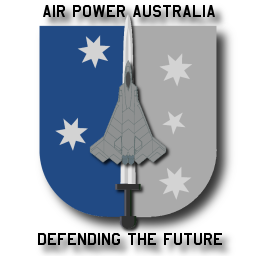|
Air Power Australia Discussion
Paper
APA-DP-2013-0801
29th August 2013
by Carlo Kopp, BE(Hons), MSc, PhD, PEng
Text © 2013 Carlo Kopp
|
|
Abstract
|
|
|
Proclaimed in
November, 2012, the DTCA 2012 departs from extant regulatory schemes
such as ITAR due to its pervasive scope, and the provisions on
“intangible technology transfers”, not yet proclaimed, which
essentially force a priori approval from the regulators for nearly all
activities involving any disclosures. The lack of proper exemptions for
open source materials, and severe criminal penalties for even
inadvertent disclosures, with the onus of proof reversed, remove the
historically accepted hard boundaries between classified/controlled
information, and open source information.
As the DTCA 2012 is now active in the defence industry, and producing
initial impacts, careful consideration of these is warranted, as
similar impacts will
arise once the legislation becomes fully active across the higher
education sector, and other areas of the Australian community working
with technology deemed to fall under the dual use category.
Major risks which an SME or consultant must consider include the
arbitrary denial of licences; the arbitrary suspension or withdrawal of
licences; the
arbitrary censorship of disclosures to a client; weak regulatory agency
protection for IP produced for a client; weak protection for client
background IP being used; weak mechanisms for resolving disputes or
differences with the regulator; and the possibility of vexatious
investigations or prosecutions being initiated over matters outside the
scope of the licence.
Air Power Australia performed a confidential survey of the views of a
number of SMEs and consultants, in relation to the impact of the DTCA
2012. Most parties disclosed the intent to cease operations in the
defence sector, due to the combination of compliance costs, but
especially due to risks arising from regulator behaviours, based on
past experience dealing with the ADO.
The proposed amendments to the DTCA 2012 intended to provide the same
protections for the university sector in Australia, as exist in the US
and UK, address only the potential damage to the university sector.
They do not address damage to the defence industry, other industry
sectors, and governance functions, where dual use technology is
employed, developed, studied or produced, and will impair the ability
to commercialise the outcomes of scientific research in Australia.
The experience with the US ITAR system shows that this type of
regulatory regime is obsolete, and no longer suitable for a multipolar
world.
All parts of the DTCA 2012 other than those dealing with the protection
of ITAR data, and previous regulation of military and WMD exports,
should be repealed immediately, and the design of a more suitable
regulatory regime initiated, in which the regulator is required to be
not only fully accountable, but demonstrate a very robust evidentiary
basis for all actions and decisions.
There will be a need for original thinking to solve this problem, and
this will require a multidisciplinary approach, in which key
stakeholders such as the academic community must play a role.
|
|
|
|
|
|
![Home - Air Power Australia Website [Click for more ...]](APA/APA-Title-Main.png)
![Sukhoi PAK-FA and Flanker Index Page [Click for more ...]](APA/flanker.png)
![F-35 Joint Strike Fighter Index Page [Click for more ...]](APA/jsf.png)
![Weapons Technology Index Page [Click for more ...]](APA/weps.png)
![News and Media Related Material Index Page [Click for more ...]](APA/media.png)
![Surface to Air Missile Systems / Integrated Air Defence Systems Index Page [Click for more ...]](APA/sams-iads.png)
![Ballistic Missiles and Missile Defence Page [Click for more ...]](APA/msls-bmd.png)
![Air Power and National Military Strategy Index Page [Click for more ...]](APA/strategy.png)
![Military Aviation Historical Topics Index Page [Click for more ...]](APA/history.png)
![Intelligence, Surveillance and Reconnaissance and Network Centric Warfare Index Page [Click for more ...]](APA/isr-ncw.png)
![Information Warfare / Operations and Electronic Warfare Index Page [Click for more ...]](APA/iw.png)
![Systems and Basic Technology Index Page [Click for more ...]](APA/technology.png)
![Related Links Index Page [Click for more ...]](APA/links.png)
![Homepage of Australia's First Online Journal Covering Air Power Issues (ISSN 1832-2433) [Click for more ...]](APA/apa-analyses.png)
![Home - Air Power Australia Website [Click for more ...]](APA/APA-Title-Main.png)
![Sukhoi PAK-FA and Flanker Index Page [Click for more ...]](APA/flanker.png)
![F-35 Joint Strike Fighter Index Page [Click for more ...]](APA/jsf.png)
![Weapons Technology Index Page [Click for more ...]](APA/weps.png)
![News and Media Related Material Index Page [Click for more ...]](APA/media.png)
![Surface to Air Missile Systems / Integrated Air Defence Systems Index Page [Click for more ...]](APA/sams-iads.png)
![Ballistic Missiles and Missile Defence Page [Click for more ...]](APA/msls-bmd.png)
![Air Power and National Military Strategy Index Page [Click for more ...]](APA/strategy.png)
![Military Aviation Historical Topics Index Page [Click for more ...]](APA/history.png)
![Intelligence, Surveillance and Reconnaissance and Network Centric Warfare Index Page [Click for more ...]](APA/isr-ncw.png)
![Information Warfare / Operations and Electronic Warfare Index Page [Click for more ...]](APA/iw.png)
![Systems and Basic Technology Index Page [Click for more ...]](APA/technology.png)
![Related Links Index Page [Click for more ...]](APA/links.png)
![Homepage of Australia's First Online Journal Covering Air Power Issues (ISSN 1832-2433) [Click for more ...]](APA/apa-analyses.png)

![Sukhoi PAK-FA and Flanker Index Page [Click for more ...]](APA/flanker.png)
![F-35 Joint Strike Fighter Index Page [Click for more ...]](APA/jsf.png)
![Weapons Technology Index Page [Click for more ...]](APA/weps.png)
![News and Media Related Material Index Page [Click for more ...]](APA/media.png)
![Surface to Air Missile Systems / Integrated Air Defence Systems Index Page [Click for more ...]](APA/sams-iads.png)
![Ballistic Missiles and Missile Defence Page [Click for more ...]](APA/msls-bmd.png)
![Air Power and National Military Strategy Index Page [Click for more ...]](APA/strategy.png)
![Military Aviation Historical Topics Index Page [Click for more ...]](APA/history.png)
![Information Warfare / Operations and Electronic Warfare Index Page [Click for more ...]](APA/iw.png)
![Systems and Basic Technology Index Page [Click for more ...]](APA/technology.png)
![Related Links Index Page [Click for more ...]](APA/links.png)
![Homepage of Australia's First Online Journal Covering Air Power Issues (ISSN 1832-2433) [Click for more ...]](APA/apa-analyses.png)